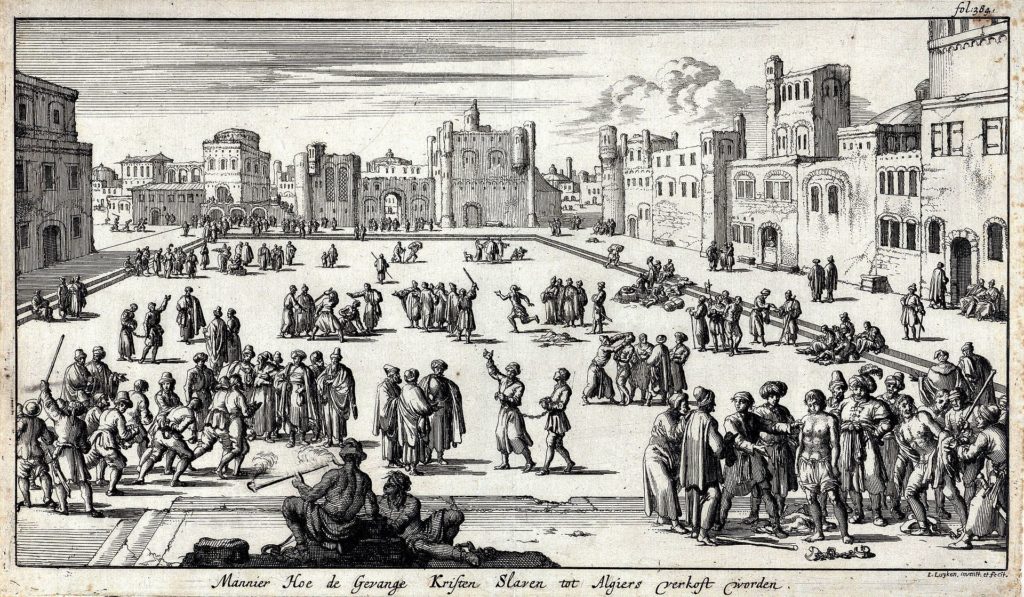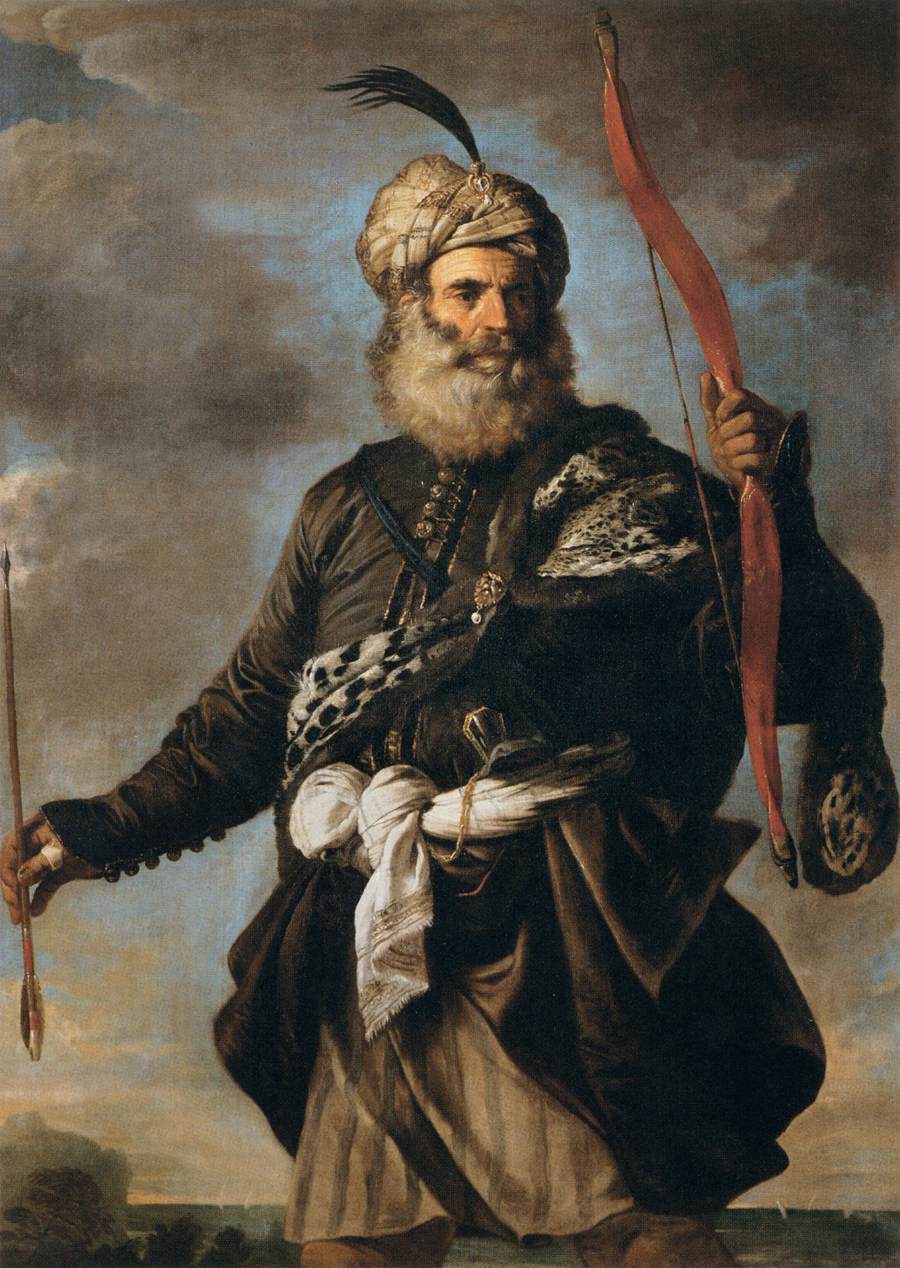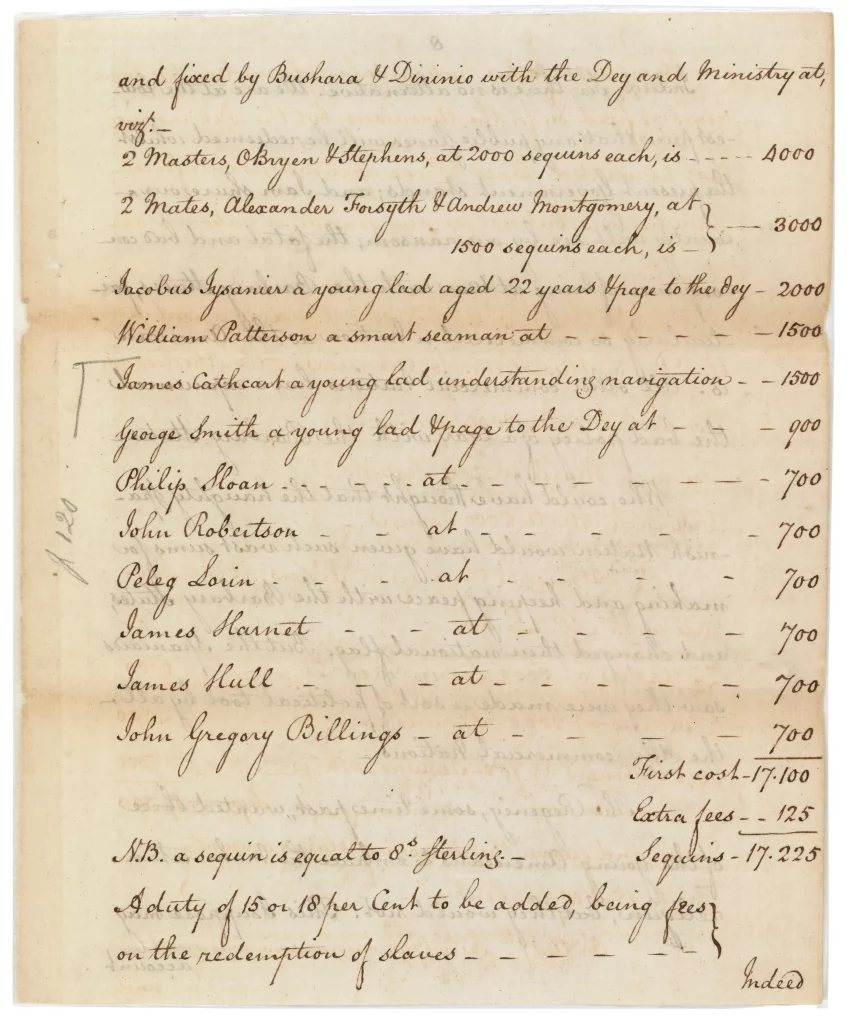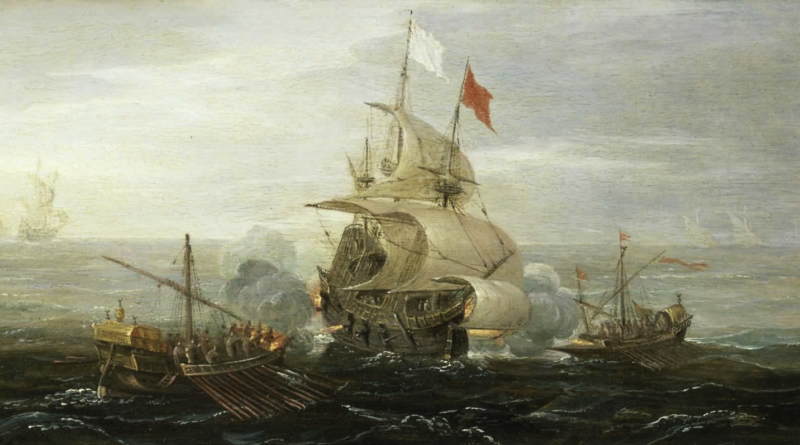The dark history of the Barbary Coast: Piracy and slavery
Few centuries ago, the souther Mediterranean sea bordering the current Maghreb states was known as the Barbary coast. The Maghreb at that time was known for piracy, slavery, and extortion.
The local rulers allowed pirate vessels to operate from their ports in exchange for a share of the loot. Pirates would attack and plunder merchant ships passing through the region, taking their cargo and often enslaving their crews.
This posed a significant challenge to trade and navigation for many countries, particularly those in Europe. As a result, a complex system of tribute payments developed in exchange for safe passage through the region.
The Barbary states also engaged in the sale of slaves, resulting in millions of Africans being forcibly taken from their homes and transported to the New World as part of the transatlantic slave trade.

Origin of the name “Barbary states”
The North African countries of Morocco, Algiers, Tunis, and Tripoli were called the Barbary States from the mid-1500s to the mid-1800s. The name was derived from the Turkish leader and pirate Barbarossa.
Under Turkish leadership, the region became a center for pirates who raided Spanish and Portuguese ships on the Mediterranean Sea and along Africa’s Atlantic coast. The pirates, also called corsairs, demanded payment in the form of loot or slaves.

Piracy ransoms
The Barbary States extorted money from European nations and the United States, requiring the governments of these countries to pay tribute for protecting their merchant marine from seizure by the corsairs.
It is difficult to determine the largest ransom paid during the Barbary Coast era since many transactions were not documented or kept confidential. However, some notable ransoms include the capture of the USS Philadelphia, whose crew was eventually released for $60,000, equivalent to several million dollars today.
By 1800, the United States had paid Tripoli alone an estimated $2 million.

Barbary war ending the Barbary Coast era
In 1801, President Thomas Jefferson refused to pay tribute to the Pasha of Tripoli, leading to the First Barbary War, which lasted until 1805. The next 15 years saw intermittent conflict between the United States and Tripoli.
The U.S. Navy won important battles along the North African coast. In 1815, the leaders of Algiers, Tunis, and Tripoli signed treaties that obligated them to cease collecting tribute or ransom from the United States. European military initiatives placed further pressure on the Barbary States to end their acts of piracy by 1835.
Key factors that contributed to the decline and eventual end of Barbary piracy include the weakening of the Ottoman Empire and the rise of European navies, particularly the British Royal Navy.
Other factors included the increasing use of steam-powered ships, which facilitated European powers’ projection of naval power into the Mediterranean and disrupted pirate activities. Military intervention by European powers, such as Britain and France, favored force to compel the Barbary states to cease piracy and the slave trade.
While a complicated period with several actors, the decline and eventual end of Barbary piracy resulted in significant impacts on global trade and geopolitics.



